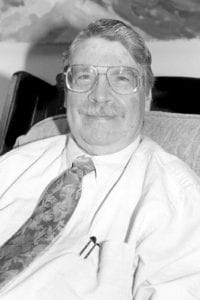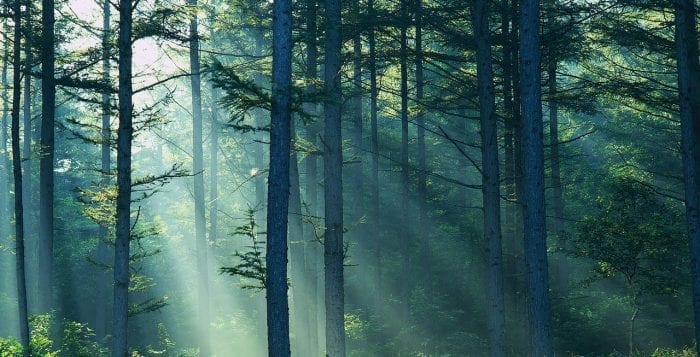By Elof Axel Carlson

We sometimes say “you can’t see the forest for the trees” to describe our frustration that details sometimes obscure the big pictures in our lives. Those bigger pictures are often what matters most to us − our family, our career, our sense of self-worth, or the meaning we hope to find in life.
It also has a deep philosophic or religious significance to people. We talk about ultimate meaning, purpose or connectedness to the universe as ways to express this feeling. I experience it in my life as a scientist. I am a reductionist and by that I mean I use reason and the tools of science to explore all aspects of the material universe. What is that universe? It is the world of atoms, molecules, macromolecules, membranes, organelles, cells, tissues, organs, organism, populations and ecosystems that constitute the hierarchies of life from its smallest to its largest aspects.
You can’t have a forest without a lot of trees. How much is a “lot”? Two trees? 100 trees? 1,000 trees? There is no definition of how many trees make a forest. Language can be imprecise by the standards used by science. A foot is 12 inches. A mile is 5,280 feet, but a forest is not X trees where X is a fixed number.
This does not mean the term “forest” is meaningless. We know a forest when we see many trees even if we don’t have a precise number to offer. I cannot tell you the exact number of cells in my present adult body, but I know roughly what it can’t exceed (it is trillions, not quadrillions; trillions, not billions). When my brother Roland first visited our home on Mud Road in Setauket, he looked in the back lot and said “Elof, the children are entering the forest!” There were about 40 trees in our one-third acre lot adjoining Gelinas Junior High School.
There are two approaches to studying life. We can study components and the field of anatomy would be a familiar and acceptable model of how science classifies the parts of the organisms studied. The second approach is through function and the field of physiology tries to relate structures to their functions. They are often multiple.
A hand holds, touches, feels; it grips, hits, shakes, picks, wipes, waves, counts, points, caresses, prays or even thumbs a ride. A middle finger hand gives an insult. Reductionism in science is the attempt to reduce the complex to the simple by isolating the components of more complex things and after isolating the components and learning of their functions, it reconstitutes the pieces and hopes to restore the functions. It can be done with viruses. It can be done partially with bacterial and eukaryotic cells. One can take the cell membrane of one amoeba, the nucleus of a second and the “cytoplasmic goop” of a third and reconstitute a live amoeba capable of reproducing from the three components.
There is a second way of looking at life called holism. It regards complexity in living cells as irreducible by reductionism. There is something inherent in that structure that cannot be duplicated by reductionist tools and efforts. In the nineteenth century names like enteleche, elan vital, vitalism, were among the terms used for this holistic interpretation of life.
It was hard to take away from God the power of creation. Many scientific holists do not invoke religion as the basis for their belief in a complexity that defies reductionism. They feel that the shades of distinction in living systems are either infinite or so vast that no human effort will synthesize a human zygote from which a child will be born. They also feel that whether that complexity eventually yields to reductionism, the world’s problems are so numerous and complex, that we cannot use reductionism alone as our means of interpreting how we live or who we are. They are more like phenomenologists in the field of philosophy who see endless shades of meaning in even the simplest events like describing the color of objects we see.
My response to this conflict is at least satisfying to my worldview − I see both trees and the forest, reductionism and holism, as essential for navigating the universe in which I live. I can ascend or descend the scale of magnitude of the universe from atoms to galaxies. My one exclusion in the material universe is the supernatural.
Elof Axel Carlson is a distinguished teaching professor emeritus in the Department of Biochemistry and Cell Biology at Stony Brook University.





